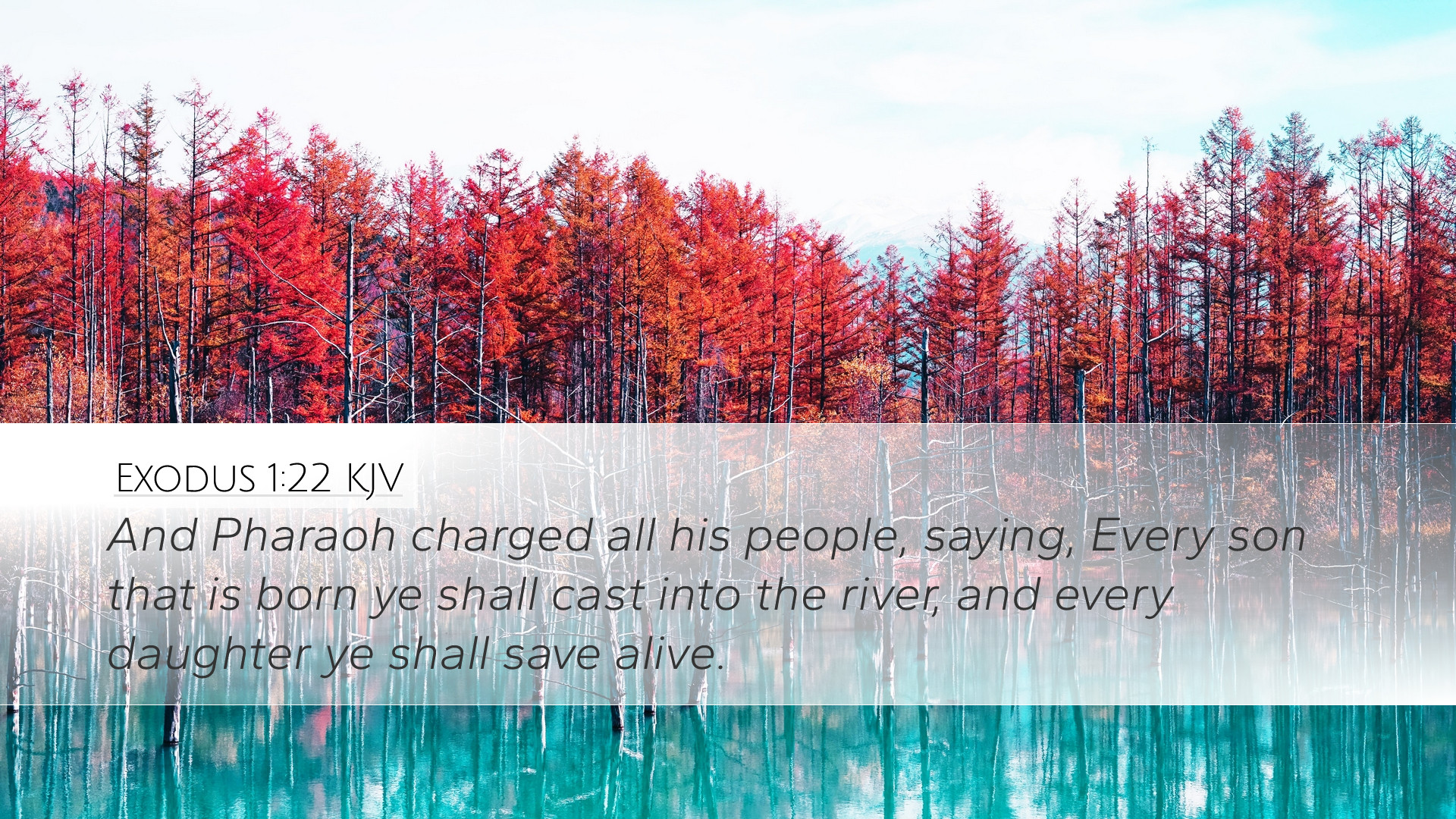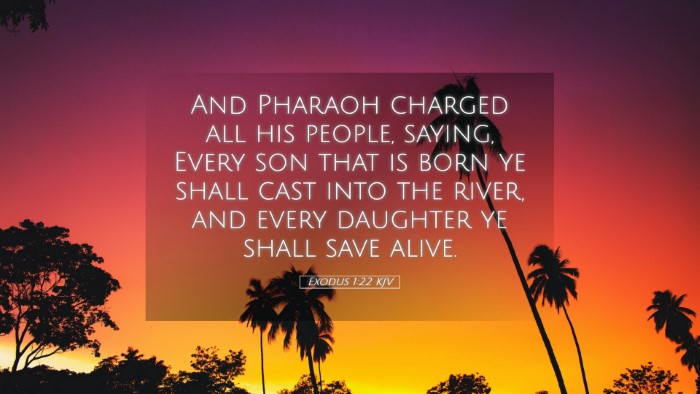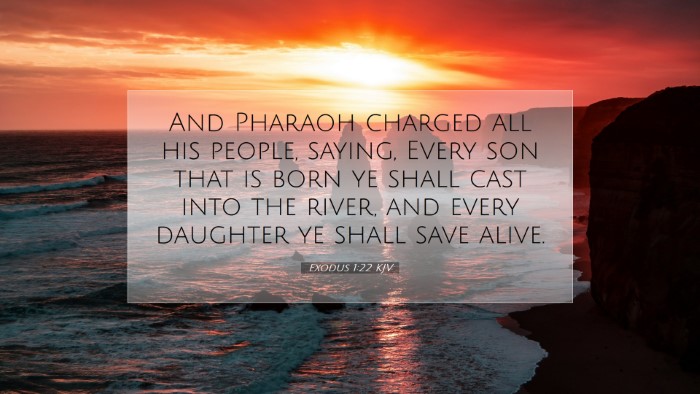Exodus 1:22 Commentary
Exodus 1:22 reads: "Then Pharaoh commanded all his people, saying, 'Every son who is born you shall cast into the river, and every daughter you shall save alive.'" This verse marks a significant turning point in the narrative of Israel's sojourn in Egypt, as it introduces the malicious decree of Pharaoh which aimed to suppress the Hebrew population.
Historical Context
The historical background of this command cannot be overstated. After Joseph's death, a new Pharaoh arose who did not know Joseph (Exodus 1:8). This change in leadership led to a new oppressive regime, motivated by fear of the growing Hebrew population, which they perceived as a threat to their power.
Theological Implications
Theologically, this verse highlights the recurring theme of oppression faced by God's people, a theme that resonates throughout Scripture. As noted by Matthew Henry, "The Egyptians were the instruments to execute God's judgments upon His people, yet they were blinded by their own folly."
Interpretations from Public Domain Commentaries
-
Matthew Henry:
Henry emphasizes that Pharaoh’s decree was not merely a brutal order but reflected a deeper spiritual battle. Pharaoh’s decision to destroy the male infants can be seen as an act of rebellion against God's providential plan for salvation through Israel. The decree disregards the sacredness of life, revealing the moral decay within Pharaoh's heart.
-
Albert Barnes:
Barnes discusses the implications of Pharaoh's command, suggesting that it was part of a broader strategy of oppression intended to reduce the strength of the Hebrews. He notes that the command to cast newborns into the river was not just a physical act of elimination but aimed to demoralize the nation by instilling fear. This act serves as a foreshadowing of the suffering and miraculous deliverance that will follow, indicating a divine plan at work.
-
Adam Clarke:
Clarke offers a vivid description of the cruelty involved, noting the stark contrast between Pharaoh’s fear and the faith of the Hebrew midwives. He points out that this decree forces the women to choose between obedience to earthly authority and their ethical obligations to preserve life, pointing to the intrinsic value of life and divine justice that flies in the face of tyranny.
Practical Applications
For pastors and theologians, Exodus 1:22 is a potent reminder of the courage required to stand against societal pressures that violate God's commands. The decision of the Hebrew midwives, who feared God and chose to protect the lives of the infants instead of complying with Pharaoh's order, serves as a model of civil disobedience grounded in faith and morality.
Students and scholars can discern the dichotomy of power and faith displayed in this narrative, examining the implications for contemporary issues regarding human rights, justice, and the sanctity of life. The text invites reflection on how believers today must navigate similar challenges in upholding truth and righteousness in a world that may devalue life.
Conclusion
Exodus 1:22 encapsulates a critical moment in biblical history, setting the stage for God's eventual intervention and the deliverance of His people. By studying the commentaries of Matthew Henry, Albert Barnes, and Adam Clarke, we gain insight into the profound spiritual, moral, and historical dimensions of this verse. As we contemplate this decree by Pharaoh, it serves as both a warning against tyranny and a testimony to the faithfulness of God amidst oppression.


